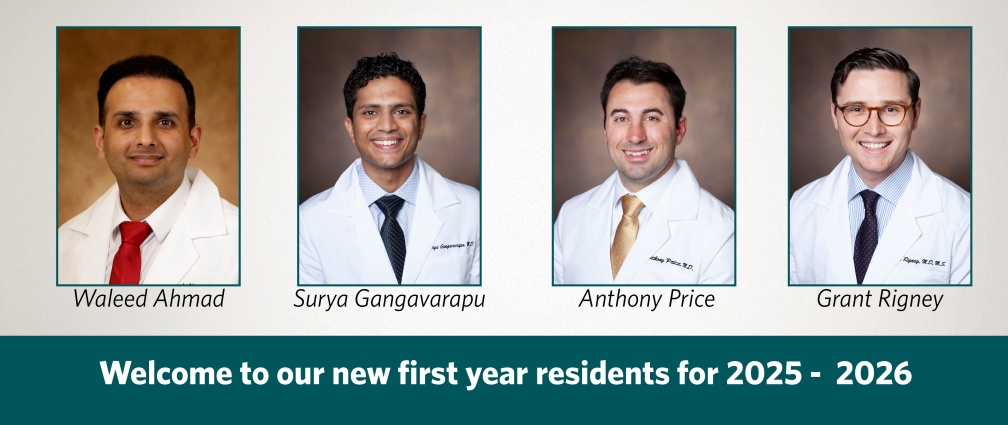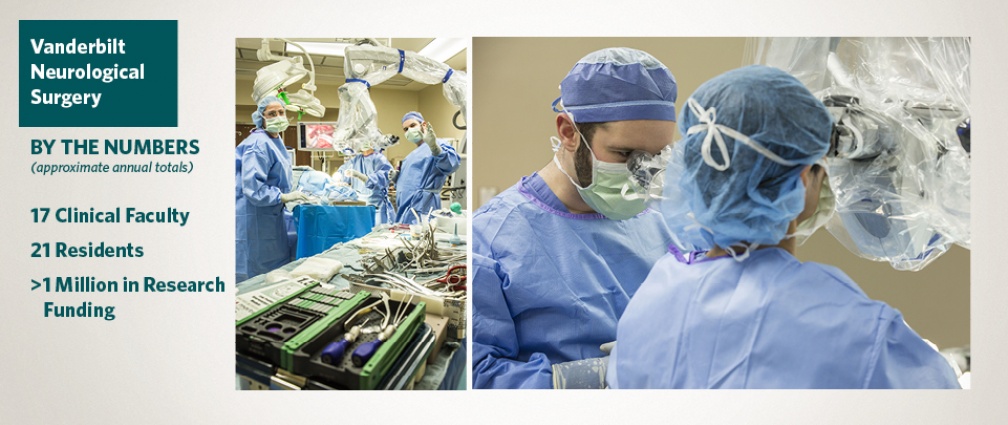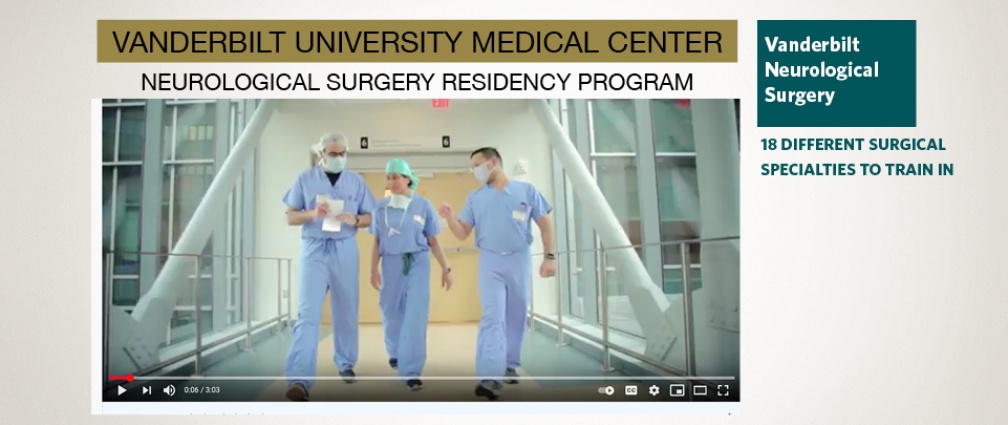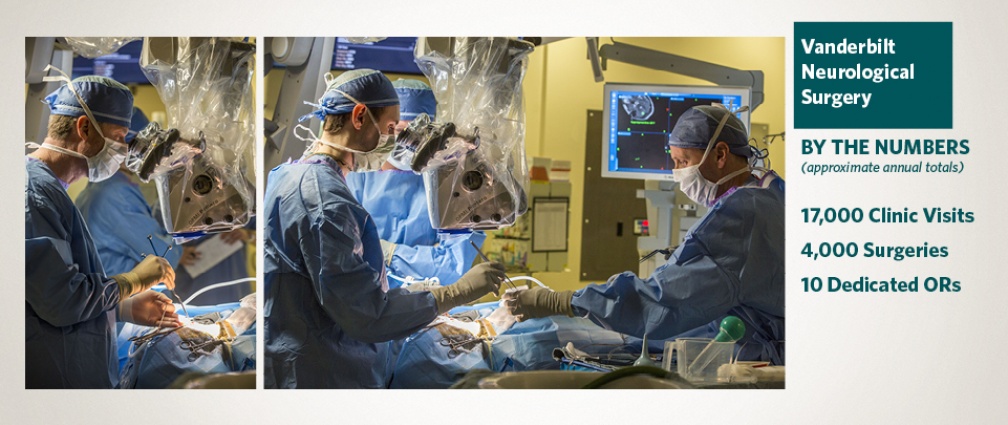Welcome
The Vanderbilt Neurosurgery Residency Program maintains a core mission of producing competent, compassionate, and technically excellent neurosurgeons well prepared for a career in general neurosurgery or the subspecialty of their choice. Residents in our program are exposed to the full breadth of neurosurgical pathology with the supervision and guided autonomy needed to safely develop the skills necessary for successful independent practice. In parallel with their clinical training, they contribute to our academic mission by leading research projects and engaging in scientific discovery. Along the way, they are taught the leadership skills needed to educate future physicians and direct the arc of neurosurgical practice in the future. Vanderbilt is uniquely positioned in several ways. Geographically we are fortunate to draw from a large catchment area without competition from other major academic/quaternary care centers. As a result, we have an incredibly high volume of complex neurosurgical pathology like acoustic neuromas, spinal deformity, epilepsy, aneurysms, pituitary tumors and fetal myelomenigocele repairs, to name a few. Our large clinical practice is based entirely on a single campus, leading to a great sense of team camaraderie and facilitating resident involvement in department didactics, while also reducing the number of separate call pools to be covered. Our medical center is embedded within the Vanderbilt University campus, meaning that collaborators from the outstanding schools of engineering, biological sciences, and business are always just down the hall. The environment is one in which a spirit of curiosity and innovation is palpable.
In addition to their core training in general neurosurgery, residents spend two years of their training in a personalized curriculum that allows them to focus on subspecialty interests. For example, a resident may pursue an enfolded fellowship in endovascular neurosurgery, developing an advanced understanding and technical ability in catheter-based treatment of neurovascular disease. Those interested in studying clinical outcomes may enroll in one of several degree programs offered at Vanderbilt such as the MPH or MSCI programs to develop a theme for their own clinical research career. Residents interested in basic science embed in one of several bench laboratories in order to lay the foundation for a successful career as a surgeon-scientist. International opportunities and rotations in unique settings away from Vanderbilt may also be incorporated, and many residents opt to blend these opportunities into an overall experience that ideally prepares them for a specific future career. As a result, our residents routinely publish their work in leading journals, present their findings annually at national conferences, land prestigious awards, and are highly recruited at the end of their training.
At Vanderbilt, we believe strongly in teamwork. We also believe that each of us can only perform at our best when we are in an environment that both challenges and supports us. Our wellness curriculum is designed to help residents and faculty alike remain well-rounded, engaged, and excited about our work. Inclusion is a core value of our team, and we are proud of the diverse backgrounds and experiences represented in our department.
If these ideas resonate with you, I hope you will consider training at Vanderbilt and enjoying all that Nashville has to offer.

Sincerely,
Lola Chambless, MD, FAANS
Residency Program Director
Professor of Neurological Surgery and Radiation Oncology
George S. Allen Chair in Neurological Surgery



